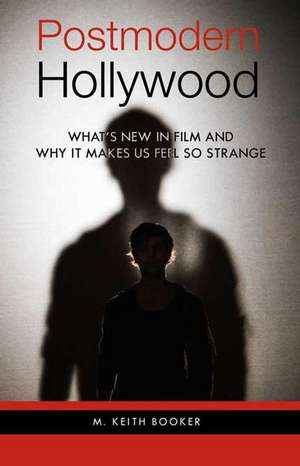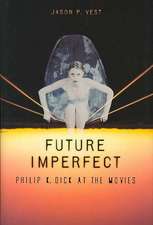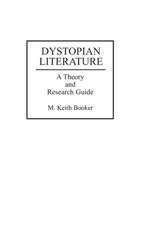Postmodern Hollywood: What's New in Film and Why It Makes Us Feel So Strange
Autor Prof. M. Keith Bookeren Limba Engleză Hardback – 29 iul 2007 – vârsta până la 17 ani
Preț: 322.11 lei
Preț vechi: 392.32 lei
-18% Nou
Puncte Express: 483
Preț estimativ în valută:
61.64€ • 64.52$ • 51.30£
61.64€ • 64.52$ • 51.30£
Carte tipărită la comandă
Livrare economică 31 martie-14 aprilie
Preluare comenzi: 021 569.72.76
Specificații
ISBN-13: 9780275999001
ISBN-10: 0275999009
Pagini: 240
Dimensiuni: 156 x 235 x 25 mm
Greutate: 0.53 kg
Editura: Bloomsbury Publishing
Colecția Praeger
Locul publicării:New York, United States
ISBN-10: 0275999009
Pagini: 240
Dimensiuni: 156 x 235 x 25 mm
Greutate: 0.53 kg
Editura: Bloomsbury Publishing
Colecția Praeger
Locul publicării:New York, United States
Notă biografică
M. Keith Booker is Professor of English at the University of Arkansas. He is the author of numerous articles and books on modern literature, literary theory, television, and film including Monsters, Mushroom Clouds, and the Cold War (2001), Strange TV: Innovative Television Series from The Twilight Zone to The X-Files (2002), Science Fiction Television (2004), Alternate Americas: Science Fiction Film and American Culture (2006), Drawn to Television: Prime-Time Animation from The Flintstones to Family Guy (2006), and From Box Office to Ballot Box: The American Political Film (2007).
Recenzii
The prolific Booker contributes a valuable cultural critique of postmodernism in contemporary film. Building on the theory of Fredric Jameson, the author addresses such postmodern manifestations as the nostalgic use of music, fragmentation, hyperlink editing, and pastiche. Perhaps his most important contribution is his examination of individual postmodern filmmakers: Tim Burton, David Cronenberg, Joel and Ethan Coen, Brian De Palma, Quentin Tarantino, David Lynch, et al. Transforming the notion of the auteur, Booker demonstrates how these filmmakers are not necessarily visionary singular artists but directors who know how to borrow from the past in creative and, at times, unnerving ways. Postmodernism challenges the traditional notion of creativity in film production. Booker's discussion of the relationship between late capitalism and postmodern filmmaking introduces intriguing new questions about cinematic challenges to hegemony and ideology.. this volume is absolutely necessary for those interested in contemporary film. The passages on such individual postmodern films as Requiem for a Dream and The Man Who Wasn't There will inform and structure undergraduate research papers for a generation. Essential. Upper-division undergraduates through faculty and professionals.















